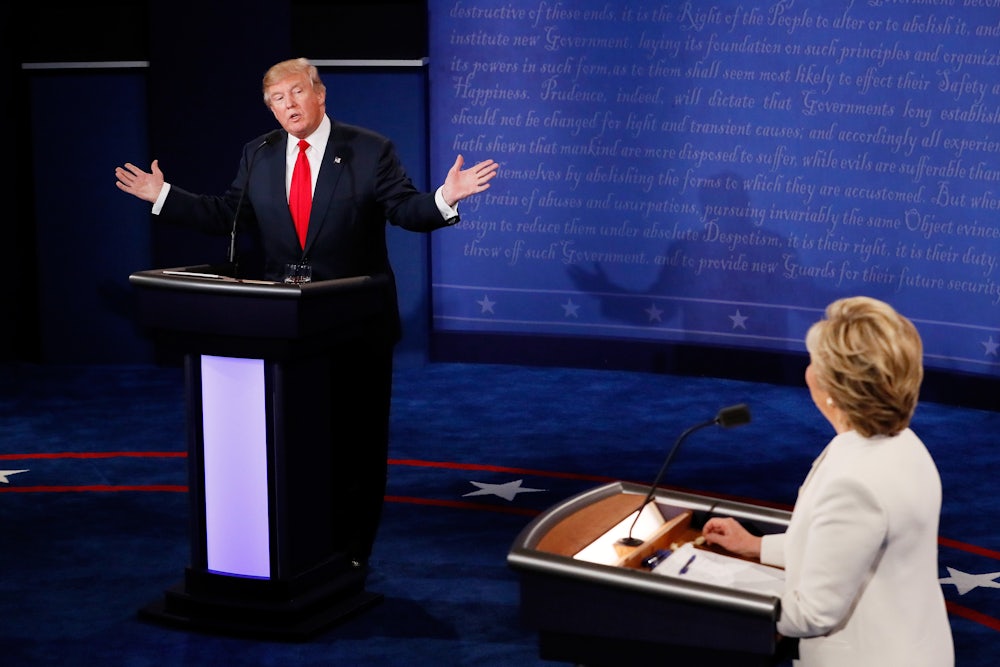“Excuse me,” he said during crossfire about her experience in the State Department. “My turn.” It was at though he had not been interrupting her for the past hour, bellowing “WRONG” into his microphone while she attempted to answer the questions that moderator Chris Wallace had directed at her.
“I did not say that,” he said later, interrupting her once again. “Did. Not. Say. That.”
Towards the end of the debate, as Clinton was answering a question about entitlements, Trump muttered into his microphone: “Such a nasty woman.”
This is not new. In the first presidential debate in September, Trump interrupted Clinton more than twice the amount that she did him, according to Vox.
But the most sobering part about his behavior is that it’s all too typical. Men interrupt women at far higher rates than women do men. In a formative 1975 study, two researchers at the University of California, Santa Barbara, concluded that men were responsible for 47 of 48 interruptions they recorded. In fact, decades of research show that when women do speak out in meetings or even in job interviews, they are often penalized—their evaluators tend to think worse of them. That’s often what holds many women back from getting raises and rising to leadership positions.
Clinton knows that. She’s faced it throughout her career. In this historic presidential campaign, the first to see a woman on top of the ticket of a major party, she has had to listen to Trump, has been interrupted by Trump, and has smiled politely at Trump while he insults her.
When he gets up on stage and attempts to silence a better qualified woman, it sends a powerful message: that any man can do the same, whether it’s in a debate, a meeting, or a job interview.
